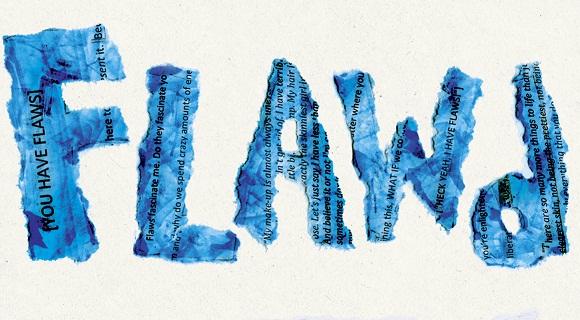Emily-Anne Rigal on the Cycles of Bullying
By Emily-Anne Rigal and Jeanne Demers

Editor's Note: Below is Emily-Anne Rigal’s story, as told by Jeanne Demers, about her experiences with bullying, its emotional backdrop, and her brave work to educate and embolden kids around the world. Rigal and Demers are co-authors of FLAWD: How To Stop Hating On Yourself, Others and the Things that Make You Who You Are.
I was fat in elementary school. Kids made fun of me. A lot. The playground was the worst. "You're not good at playing 4-Squares because you're fat… You can't play with us… You're not good enough to play."
It made me feel so bad about myself.
I dreaded hearing that we could pick our own partners. No one would want to be my partner. I ended up being the person the teacher would take by the hand and awkwardly say, "Okay, Emily Anne's going to join your group." The people I was being forced to join wouldn't like it.
It made me feel so un-included.
The people in my class thought that Britney Spears was so lame. I wanted to say, "No, I like Britney Spears," but liking what I genuinely liked made me "uncool."
It made me feel so unacceptable.
I didn't tell my parents because I was embarrassed that I was being bullied and picked on for being fat. I didn't want them to know that I was flawed and felt terrible about myself, that I was insecure. So I isolated myself. I didn’t talk about it until after it all ended.
It ended because I switched schools. That's how bad it got. In the new school I was able to make friends. Things were a lot better. I was no longer labeled "uncool."
But then…
I started being the mean one. I remember a girl wanted to walk with my friend and me. I started laughing at her and got my friend to run away from her with me.
That memory stays with me. It's so hard to admit. It makes me cringe to tell it. But I tell that part of the story because that’s where I learned so much about bullying. On the day I ran away from that girl, I felt really, really terrible when I was on the school bus going home. It hurt me that I had done that to another person.
Of the observations I’ve made from both sides of the bullying experience, top among them is that neither side feels good. I also observed that they're both cycles.
There is the Cycle that Perpetuates Bullying and the Cycle that Ends It.
- People express hatred toward others because that's how they're feeling about themselves. "Hurt people hurt people" is really true. I wanted so badly to feel better about myself and I thought that putting other people down would make me feel better. It didn't. It made me feel so much worse.
- People who feel good about themselves want others to feel the same. Once I had friends who didn't judge me for who I was, I started to feel really good about myself. Once I started to feel really good about myself, I wanted other people to feel that way, too. Things started moving more and more in that direction.
I literally had a light bulb moment. I suddenly knew a positive way to go at something very negative. "Raising teen-esteem" was the way to end bullying! That was the idea behind WeStopHate.org. From my bedroom I began making videos and inviting all my YouTube friends to make videos, too, sharing their favorite confidence tips and tricks. And any stories of overcoming bullying.
Soon lots of teenagers were making videos. WeStopHate took off and grew really quickly. When it got to over one million video views I was asked to write a self-esteem guidebook. My writer friend Jeanne and I got busy using the entertaining teen wisdom from the videos to guide us.
We called it FLAWD: How To Stop Hating On Yourself, Others, and the Things that Make You Who You Are because one thing that got talked about more than any other was 'flaws.' Having them and figuring out how to accept them.
It’s about just accepting your flaws and just moving on with your life because there’s so many more things to life than just worrying about not having the clearest skin, not being the prettiest, not being the smartest, and not succeeding at absolutely everything that you do. —Momo055650, age 16
Now what I'm really passionate about is this: I want people to see that it's not in spite of your flaws that you have something really great to share with the world… it can be because of them. Because that’s how it went for me. My flaws gave me my voice, my motivation, my way of making the world a better place.
You know the Leonard Cohen song that goes, "There is a crack in everything. That's how the light gets in." Well, it’s also how the light gets out.
